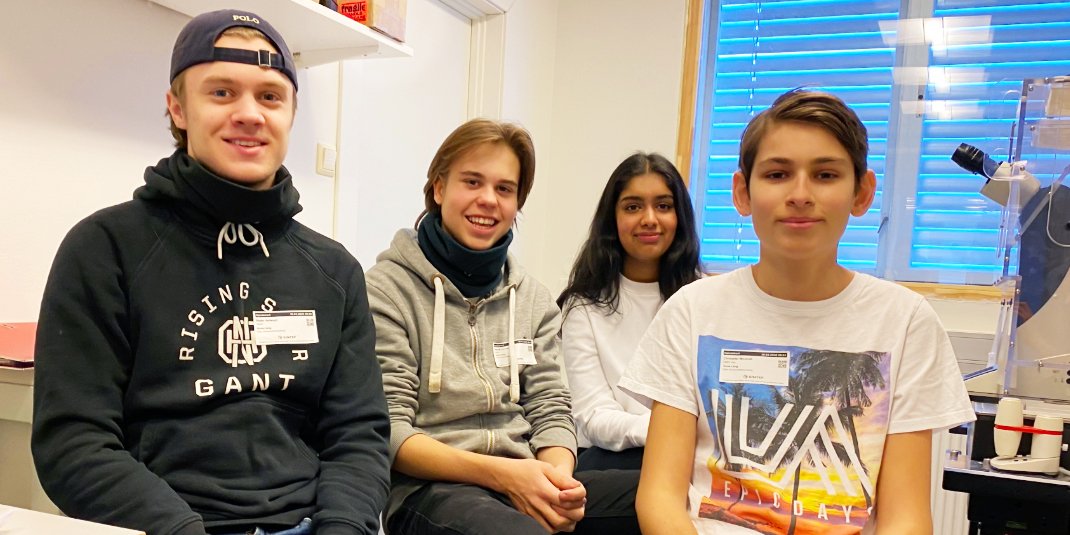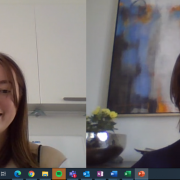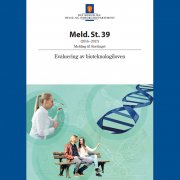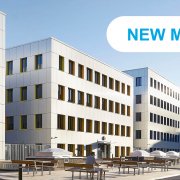This article was originally published in Norwegian on our School Collaboration website.
Even during the corona lockdown, the researcher students have received inspiring classes online, but they miss the practical work and are happy to soon return to school.
The researcher programme is an opportunity for upper secondary students who want to specialise in the natural sciences and the teaching is based on a combination of practical work and in-depth theory. So, how has home schooling been during corona lockdown? Digital classes in biology have replaced the usual work placements in professional research laboratories and performing experiments in school. We talked to the students Tia and Henrik, and their teacher Monica, to find out more.
CORONA UPDATE
This article was written before the Norwegian government released the positive news that students will return to school during week 20.
Since Ullern Upper Secondary School houses almost 1 000 students, they will return gradually to control the spread of COVID-19. The Researcher Programme starts on Wednesday 13 May and the class will be off to a flying start.
“The students will receive a lecture from an astrophysicist on their first day back. It was supposed to be delivered digitally, but now it might take place in the classroom, which will be extra special!” says Monica.
Both Monica and the students are looking forward to returning to the school. Henrik and Tia were hoping to begin school again during May and now they are getting their wish fulfilled.
“I think home schooling works. It is effective. The teachers have made great arrangements and we are learning new things,” says Henrik Corneliussen, who is in his first year of the Researcher Programme.
“I think it is going surprisingly well in many subjects, but it is difficult to stay motivated and focused on the teaching when we are doing so much on our own. Math is a bit more difficult now and biology is also challenging,” says Tia Morigaki Sauthon, who is in the same class as Henrik.
Monica Flydal Jenstad and Ragni Fet are Natural Science teachers and have both been cancer researchers. They are responsible for the new Researcher Programme at Ullern Upper Secondary School and teach biology and natural science to the class of 32 students for 10 hours every week.
Almost overnight, the teachers had to change their planned classes, because of the corona pandemic. They went from being physically present in the classroom – with all the available lab equipment and the possibility to perform experiments to exemplify different theories – to communicating with the whole class over the video-calling system Teams and teaching the students by using PowerPoint presentations and group tasks.
“Ullern Upper Secondary School is following the normal curriculum during homeschooling. When class begins, everyone checks into our Teams chatroom and says hi. Ragni or I deliver the teaching, usually through a lecture, and then the students complete tasks in a program called ‘OneNote’. We can see if the students are completing the tasks and help them if they are stuck or wondering about something,” Monica says.
Monica explains that life as a teacher has become more hectic and intense during corona lockdown, delivering classes in a digital format and being more available via messaging and calls over Teams.
Missing the practical aspects
Even though Henrik and Tia are generally happy with the digital classes, there are a few things they miss during homeschooling.
“I really miss the practical schoolwork, which we can barely do at all, because we lack access to equipment that we need to perform experiments at home. We have also missed out on many placements, which is a shame. I have luckily already participated in one placement, but it is sad for the students who haven’t had the opportunity,” Henrik says.

Image caption: Henrik, second person from the left, is one of the lucky students on the Researcher Programme, who has already participated in a placement. The other students in the picture are Peder, Isha and Christopher. The placement was with the research group for advanced cancer therapy in February. Photo: Elisabeth Kirkeng Andersen
“It is really sad that we have missed out on so much practical work, which was why I chose the Researcher Programme. Fortunately, we have done a few experiments at home. We have, among other things, made our own solar thermal collectors and learnt how to measure light strength in lux, which we have used to understand how to measure the distance from the Earth to the stars,” says Tia.
Monica shares the students’ feelings.
“The students were in the middle of their independent research projects when the school closed. Some had already performed experiments at home with plants that they could follow up, but other students were dependent on finishing their projects at school. The purpose was always for them to present the results of their research during a poster session, which is a presentation format that researchers use to show data and other findings from their research, but we have had to postpone this activity. Hopefully, we can complete it in June with the students’ mentors present,” Monica says.
The poster session is not the only thing the students have missed. Four placements with different research groups at Oslo University Hospital and the company Thermo Fisher Scientific, and three relevant lectures by researchers, were planned for the period they have been stuck at home.
“The students have missed out on many aspects of the Researcher Programme in this period, because it is difficult to perform the practical work, both in the regular teaching and in the form of placements. It is simply a more boring school day,” Monica says.
The corona pandemic itself can however be used in the teaching, both in mathematics to learn about exponential growth and in biology to learn about viruses.
Happy to return to school
Tia and Henrik really miss being in school together with the other students of the Researcher Programme and other friends, both at Ullern and outside of school.
“I look forward to meeting my friends again. I don’t see many of them now. I also look forward to getting started with the practical work at school, with experiments in the natural sciences and biology. It is really fun, and the teachers are good at organising interesting experiments and placements, in collaboration with Oslo Cancer Cluster,” says Henrik.
Tia also misses her friends a lot.
“Maybe what I look forward to the most is getting back to the normal everyday routine – going to school and being with friends. I talk to my friends over Teams and have one friend I meet a lot, but I miss being with many people at once,” says Tia.
She thinks the learning is more challenging from home.
“It is easier to ask for help in school. It is much more difficult to get a verbal explanation without being shown how everything is connected by the teacher, so I spend a lot of time trying to figure things out myself instead of asking for help,” says Tia.
The students are also sorely missed by their teachers.
“I miss them all and especially the contact with the students in a classroom setting, one-on-one. It is much more fun and better to follow the students directly, especially when they think the subject is a bit heavy,” says Monica.
Tia is still sure that even though the corona pandemic has had far-reaching consequences, not all of them are bad.
“I think it seems like everyone has made the best out of the situation. It could have gone much worse and been much worse. In many ways, I think this is a useful experience and, one way or another, something good will come of it,” says Tia.
Summary of postponed or cancelled plans for the students:
- Poster session about their own research projects with the mentors
- Lecture on screening of new-borns with Janne Strand, Child- and Youth Clinic, Oslo University Hospital
- Lecture on structural biology and drug design with Bjørn Dalhus, Oslo University Hospital
- Lecture on organising research with Barbra Noodt, Cancer Clinic, Oslo University Hospital
- Placement with Thermo Fisher Scientific
- Placement with Harald Stenmark at the Department of Molecular Cell Biology, Oslo University Hospital
- Placement with Hans Christian Aas at Flow Cytometry Core Facilities at Oslo University Hospital
- Placement with Bjørn Dalhus’ research group Structural Biology and DNA repair, Oslo University Hospital.


 Alice Ponce / Pixabay
Alice Ponce / Pixabay











